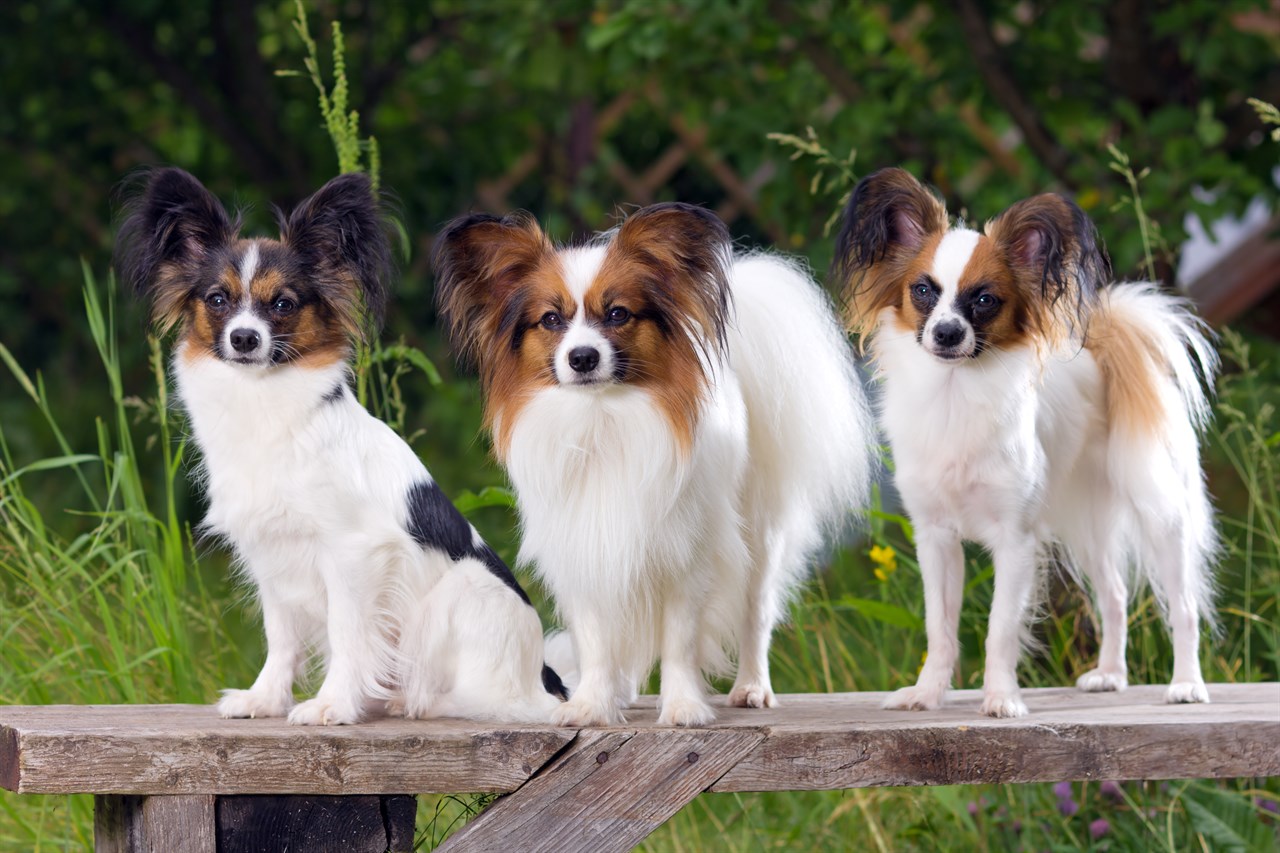Papillon Feeding Habits and Food Requirements

Proper nutrition is crucial for the health and well-being of your Papillon. Understanding their feeding habits and dietary requirements can help you provide them with the best possible care. Here's what you need to know about feeding Papillons.
High-Quality Dog Food
Papillons should be fed a high-quality commercial dog food that is appropriate for their age, size, and activity level. Look for dog foods that list a high-quality protein source, such as chicken, beef, or fish, as the first ingredient. Avoid foods with fillers like corn, soy, or artificial additives.
Age-Appropriate Feeding
Papillon puppies have different nutritional needs than adult dogs. Be sure to feed them a puppy-specific formula during their growth and development stages. As they mature, transition them to an adult formula dog food. Some senior Papillons may benefit from a senior dog food with specialised ingredients for joint health.
Portion Control
Papillons are a small breed, and it's important to practise portion control to prevent overfeeding, which can lead to obesity. Follow the feeding guidelines on the dog food packaging or consult your veterinarian for recommendations based on your specific dog's age, weight, and activity level.
Frequent Meals
Papillons can be prone to hypoglycemia (low blood sugar) due to their small size and high energy levels. To help maintain stable blood sugar levels, it's a good idea to feed them smaller, more frequent meals throughout the day rather than one or two large meals.
Fresh Water
Always provide your Papillon with access to fresh, clean water. Proper hydration is essential for their overall health.
Avoid Human Foods
While it may be tempting to share your food with your Papillon, it's best to avoid feeding them human food, especially items that can be toxic to dogs, like chocolate, grapes, onions, and certain artificial sweeteners.
Treats in Moderation
Treats can be a helpful tool for training and rewarding your Papillon, but they should be given in moderation. Excessive treats can contribute to weight gain.
Dietary Allergies and Sensitivities
Some Papillons may have food allergies or sensitivities that require a special diet. If you notice signs of digestive upset, skin issues, or other unusual symptoms, consult with your veterinarian to explore potential dietary changes.
Regular Veterinary Check-Ups
Regular veterinary check-ups are important to monitor your Papillon's overall health, including their weight and dietary needs. Your vet can provide recommendations for specific dietary requirements or changes based on your dog's age and health status.
In conclusion, providing your Papillon with high-quality, age-appropriate dog food, portion control, and regular veterinary care is essential for their health and well-being. Proper nutrition is one of the keys to ensuring that your Papillon leads a happy and healthy life.